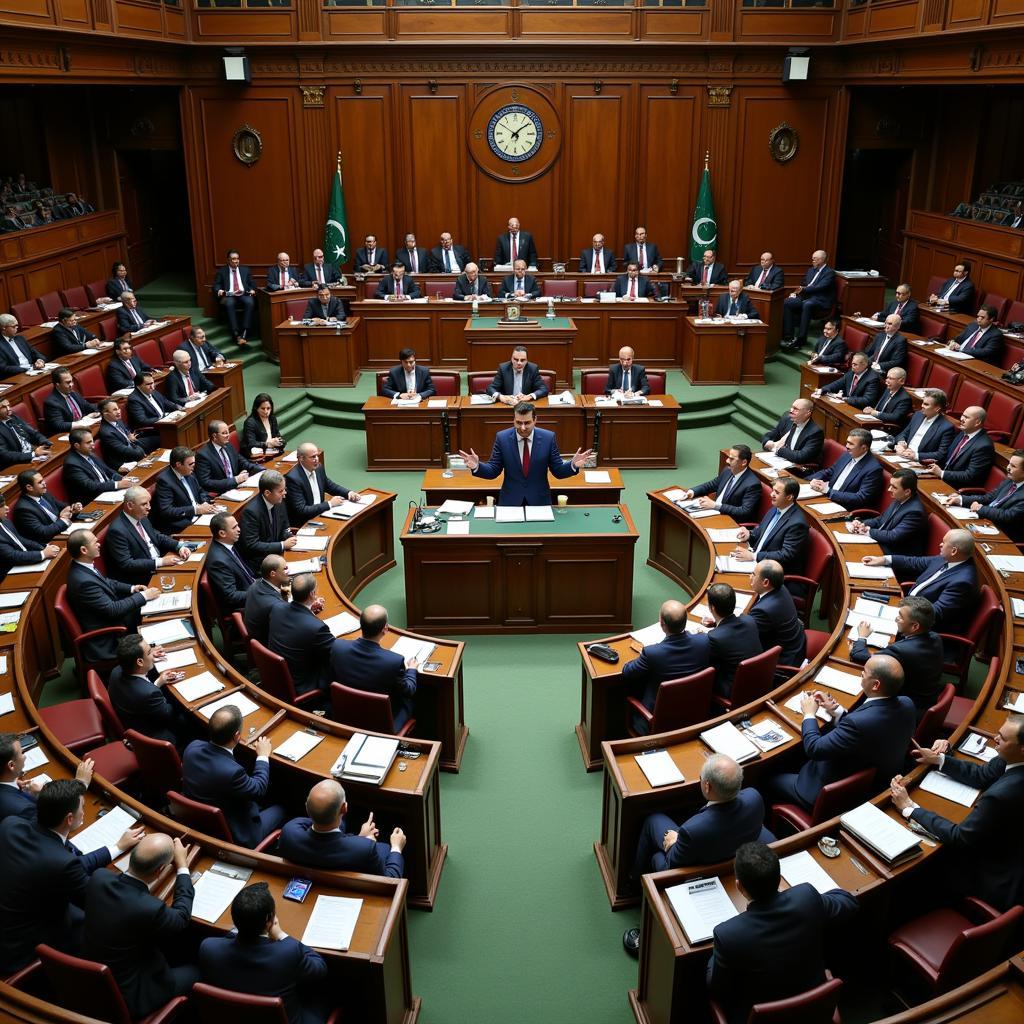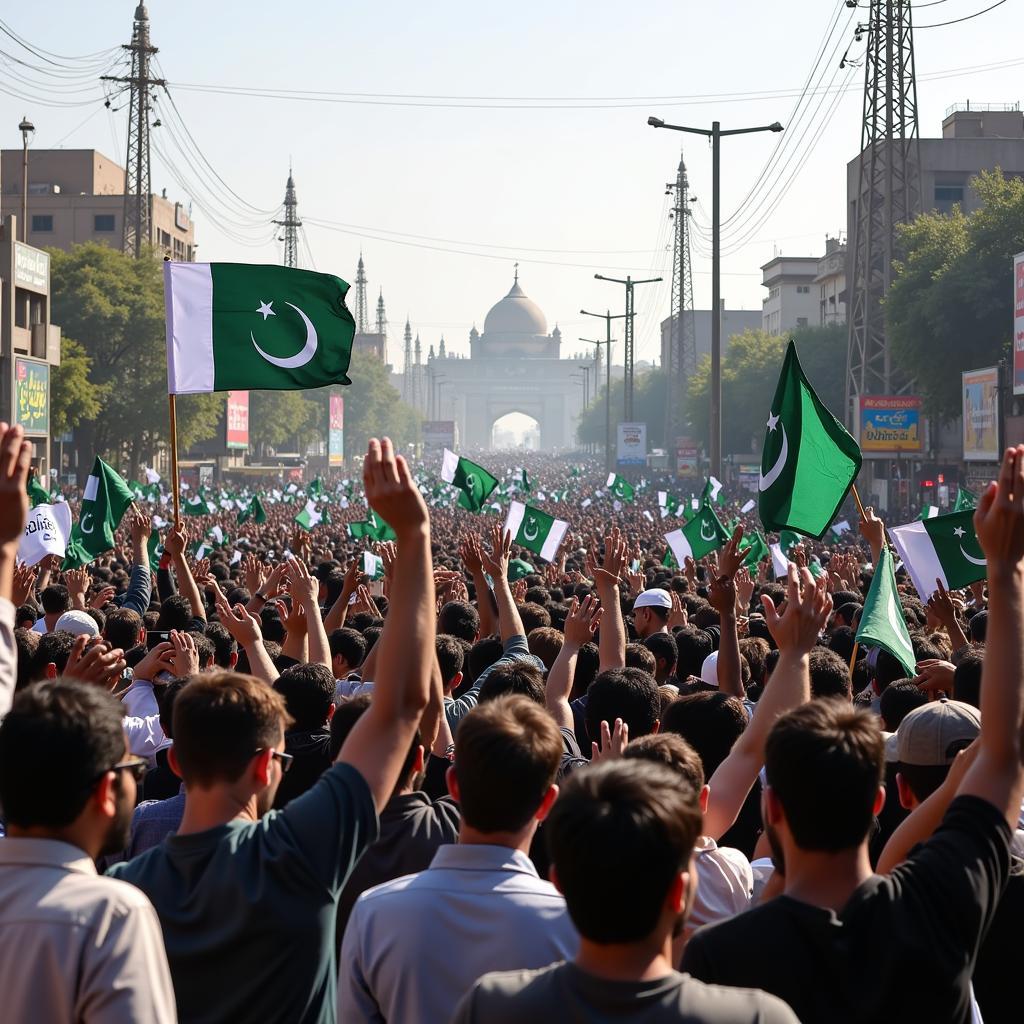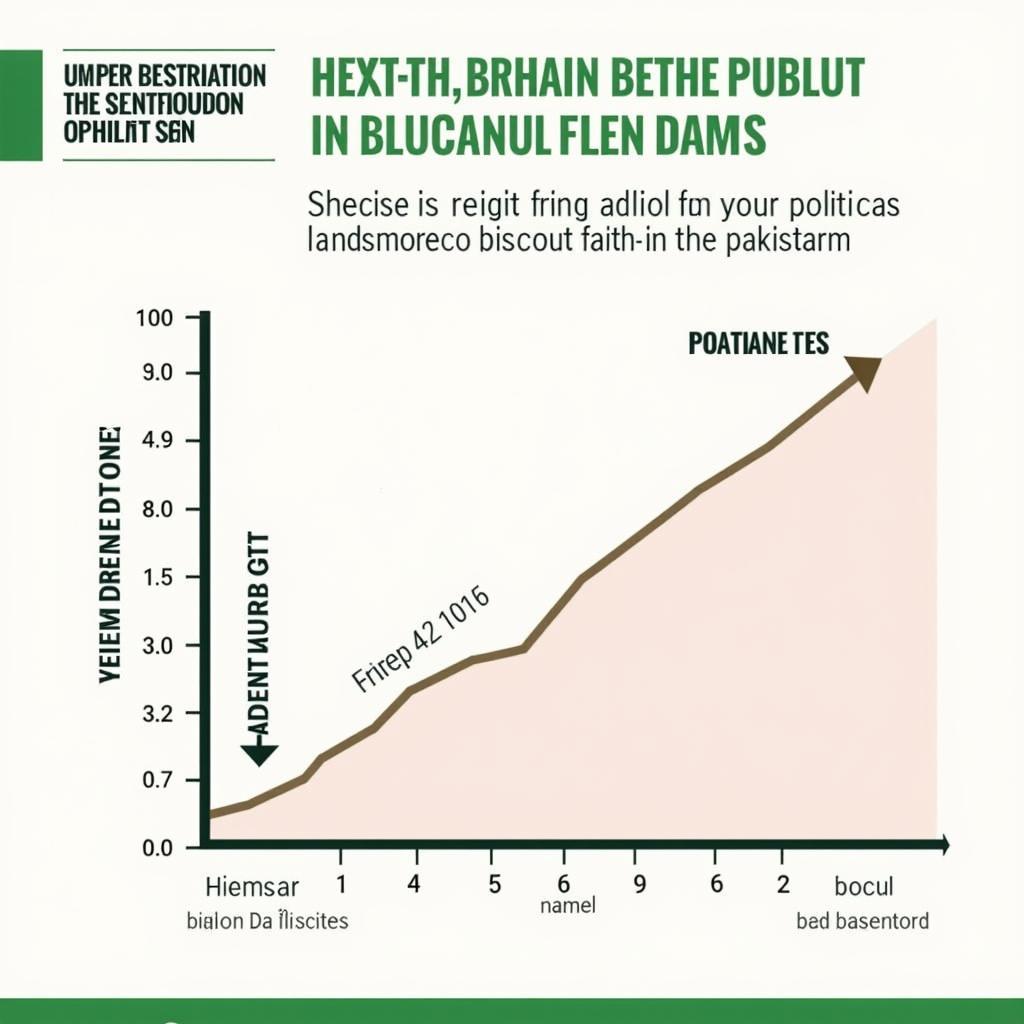Political parties are the backbone of any democratic system, and Pakistan is no exception. They shape public opinion, influence policy, and provide a platform for citizens to participate in the political process. Understanding the Role Of Political Parties In Pakistan is crucial to grasping the complexities of the nation’s political landscape.
The functioning of political parties in Pakistan has been marked by periods of both stability and upheaval. From the early days of independence to the present, the role of political parties in Pakistan has been constantly evolving. This article delves deep into the influence, challenges, and future of political parties in Pakistan’s democratic journey.
Understanding the Landscape of Political Parties in Pakistan
Pakistan’s political landscape is diverse, with a multitude of parties representing various ideologies, ethnicities, and regional interests. This diversity, while reflective of the country’s complex social fabric, also presents challenges in terms of political stability and consensus-building. Dominant parties often emerge, but their power is frequently checked by a vibrant opposition and the rise of new political forces. The dynamics between these competing forces are crucial in shaping the nation’s political trajectory.
One key aspect of understanding the role of political parties in Pakistan is analyzing their internal structures and decision-making processes. Internal party democracy, or the lack thereof, often dictates how effectively a party can represent the interests of its constituents. Moreover, the funding mechanisms of political parties, and the transparency (or lack of it) surrounding these mechanisms, play a significant role in determining the influence and reach of political parties.
After the independence of Pakistan, political instability led to the imposition of martial law several times, significantly impacting the role of political parties. You can learn more about this in our article on constitutional history of pakistan.
 Political parties influencing policy in Pakistan
Political parties influencing policy in Pakistan
Key Functions of Political Parties in Pakistan
Political parties play several key roles in a functioning democracy. They are responsible for:
- Representing Public Opinion: Political parties aggregate diverse public opinions and articulate them in a coherent manner. This allows citizens to have a voice in the political process and ensures their concerns are addressed by policymakers.
- Formulating Policy: Parties develop policy platforms and propose solutions to national issues. Through debate and negotiation, these policies are refined and eventually implemented by the government.
- Mobilizing Voters: Parties play a critical role in mobilizing voters during elections, ensuring citizen participation in choosing their representatives.
- Recruiting and Training Leaders: Parties identify and groom future political leaders, providing them with the necessary skills and experience to effectively govern.
How can citizens engage more effectively with political parties? By participating in party meetings, attending rallies, and engaging in discussions on policy issues, citizens can hold parties accountable and contribute to a more vibrant democratic process. Pakistan has a rich history of security companies playing a crucial role in maintaining stability. Explore more about this topic at security companies in pakistan.
 Political party rally in Pakistan
Political party rally in Pakistan
Challenges and Future of Political Parties in Pakistan
Despite their vital role, political parties in Pakistan face numerous challenges. These include:
- Dynastic Politics: The dominance of a few powerful families in certain parties hinders internal democracy and limits opportunities for new leaders.
- Corruption and Lack of Transparency: Allegations of corruption and lack of financial transparency erode public trust in political parties.
- Electoral Reforms: The need for continuous electoral reforms to ensure free and fair elections remains a crucial challenge.
Dr. Aisha Khan, a prominent political scientist, notes, “Pakistan’s political parties need to prioritize internal reforms and transparency to regain public trust. This is essential for strengthening the democratic process.”
 Challenges faced by political parties in Pakistan
Challenges faced by political parties in Pakistan
Addressing these challenges is crucial for strengthening the role of political parties in Pakistan. Reforms aimed at promoting internal party democracy, increasing transparency in party financing, and ensuring free and fair elections are essential for a more robust and representative democratic system. For more resources on Pakistan affairs, you can visit Pakistan Affairs PDF.
Conclusion
The role of political parties in Pakistan is multifaceted and crucial to the nation’s democratic future. While facing numerous challenges, these parties remain essential for representing public opinion, shaping policy, and fostering citizen participation in the political process. By addressing the issues of dynastic politics, corruption, and electoral reforms, Pakistan can strengthen its democratic institutions and ensure a more stable and prosperous future. The importance of political parties cannot be overstated. They are the vehicles through which citizens exercise their political rights and shape the destiny of their nation. For further insight into current affairs, visit Breeze Pakistan.
FAQ
- What are the major political parties in Pakistan?
- How are political parties funded in Pakistan?
- What is the role of the Election Commission of Pakistan?
- How can citizens join a political party in Pakistan?
- What are the challenges faced by political parties in Pakistan?
- What reforms are needed to strengthen the role of political parties?
- How do political parties impact policy making in Pakistan?
Common Scenarios
- Scenario 1: A citizen wants to raise a concern about local infrastructure. They can contact their local political representative or participate in town hall meetings organized by their party.
- Scenario 2: A young person is interested in entering politics. They can join the youth wing of a political party and participate in party activities.
- Scenario 3: A citizen wants to learn more about a specific political party’s platform. They can visit the party’s website or attend public rallies and meetings.
Related Resources
- Explore our article on Pakistan Affair MCQs PDF for a deeper understanding of the country’s political landscape.
Need support? Contact us 24/7 at: Phone: +923337849799, Email: news.pakit@gmail.com or visit our office at Dera Ghazi Khan Rd, Rakhni, Barkhan, Balochistan, Pakistan.